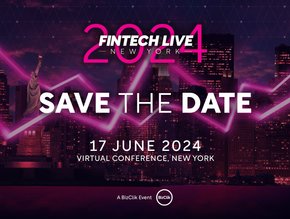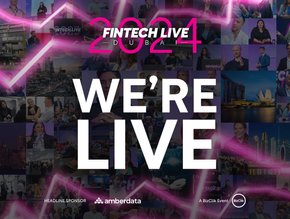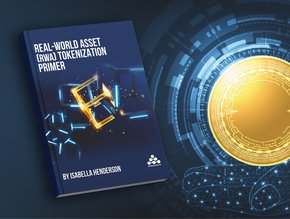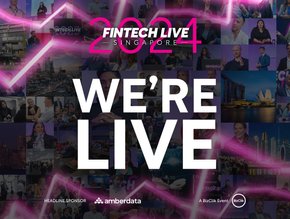Cindicator: Hybrid intelligence in the digital asset market

Nodari Kolmakhidze, veteran trader and Chief Investment Officer at Cindicator, a predictive analytics asset management company with headquarters in New York, St Petersburg and Moscow, shares his analysis of cryptocurrency investment and the future of hybrid artificial intelligence in fintech and investing.
The digital asset market has recently stabilised after last year’s collapse, and has now begun its rebound. The market is also being impacted by a new wave of Initial Exchange Offerings (ICOs), spearheaded by crypto exchanges, which have started to host token sales on their platforms. This move has attracted contributors and speculators, lured by the prospect of tokens instantly being listed on a big exchange and other lucrative factors. In any case, the rise of IEOs seems to be having a positive impact on the whole digital asset market, even if this impact is more speculative than fundamental at the moment.
There are also some trends in the digital asset market that are directly impacting the asset management industry. For example, we can see increasing competition between cryptocurrency exchanges, which is good for the industry because this will eventually lead to lower trading fees, a wide range of tradable assets (listed without listing fees), and more functionality (for example sub-account features, margin trading, crypto-fiat gateways etc).
Another trend is increasing competition between custodians which can lead to lower fees (they are quite high at the moment, comparable to an average hedge fund’s annual management fee) and new features such as fund insurance.
The storage of assets is one of the biggest challenges in digital asset management for both retail and institutional investors. If investors have a portfolio consisting of coins working on different blockchains (for example BTC, ETH, NEO, EOS, XRP etc.), they will have trouble storing all the coins. The biggest protocols are supported by hardware wallets (so a trader can have all their coins in one place if they need it), but most of the newly created projects aren’t supported by hardware wallets, which means an investor would need to have several different wallets (full or lite clients), different keystore files etc. Furthermore, a quick transfer of the necessary coins from a cold wallet to an exchange in the event of a sudden price move is not an easy process. Thus, having a secure and insured custodian infrastructure could greatly help with this challenge.
These trends are changing the digital asset market landscape and the ways asset managers are working in this field. New features are obviously provide better usability for existing infrastructure, lower custodian fees could encourage more fund managers and investors to use it, a crypto-fiat gateway could positively impact the AUM itself, and features like margin trading allow asset managers to build long/short strategies and neutral portfolios.
SEE ALSO:
Speaking of future trends, we can expect a rise in STOs (Security Token Offerings) and there could be some fundamental reasons behind it. One of the reasons is that issuing liquid and easily tradable securities could boost companies by giving them a chance to attract global capital, including small investors through fractional ownership. The second reason is that ICOs usually sell utility tokens, which have no rights beyond being used within the platform or being traded. In order to attract investor attention, however, they could start offering additional rights to their token holders (such as dividends, voting rights, etc).
On a longer time frame, we also could see a surge in different types of digital assets, including for example cyber game assets, non-fungible tokens, digital art, and tokenised assets. This increase in new types of digital assets will also lead to higher uncertainty and complexity from the point of view of market analysis and investments.
What could serve as a solution that will help investors to work with this uncertainty and analyse the rising number of digital assets? Hybrid Intelligence.
Cindicator’s Hybrid Intelligence is a symbiosis of more than 125,000 human minds and 50 machine learning models that creates tools for effective asset management and better decision-making amid high market uncertainty. The combination of the collective intelligence of highly motivated, globally distributed financial analysts and AI makes it possible to get rid of bias and use the advantages of each part of Hybrid Intelligence.
After four years of development, it’s become clear that this technology is applicable for effectively managing assets on both digital asset markets and global equity and commodity markets. For example, recent forward tests showed that by using Hybrid Intelligence indicators in one of Cindicator’s digital market portfolios, it is possible to consistently outperform capital-weighted benchmarks’ (for example Coinbase Index, Huobi 10 and others) cumulative return by more than two times.
Another example is active long/short strategies based on Hybrid Intelligence indicators, which are sent to Cindicator token holders. Those strategies have superior risk-adjusted returns compared with their purely quantitative or discretionary analogues.
In conclusion: considering the increasing level of uncertainty provoked by accelerating growth in the number of digital assets, there is a demand for efficient solutions for market analysis and asset management. Hybrid Intelligence is the fruitful cooperation of human minds and machine learning models, and one of the best decision-making tools for global and digital asset markets.






